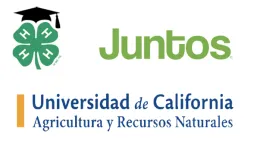4-H is Helping Prepare Youth for College and Career
By Steven Worker, Ph.D., 4-H Youth Development Advisor and Diego Mariscal, UC 4-H Outreach Coordinator
Youth need to be prepared for higher education or a skilled profession after they graduate from high school. A college-ready young person is academically prepared for a four-year, two-year, or vocational course of study without the need for remedial coursework. College-ready youth are competent in reading, writing, mathematics and have social and life skills to succeed in a post-secondary program. Career-ready youth have the knowledge, skills, and dispositions needed for employment in their chosen career. Unfortunately, many high school graduates are not ready for college or the workforce. In California, less than one in three high school ACT-tested graduates were not ready for entry-level college courses. The cost of college tuition and social disadvantages contribute to access barriers for some families. In the fastest growing career fields, less than half of high school graduates interested in these fields meet the ACT College Readiness Benchmark. Companies are often finding it challenging to recruit qualified workers to fill needed positions. Solving these challenges and supporting our youth in becoming college and career ready will require collaborations between schools, youth programs, businesses, and families.
The University of California Cooperative Extension is strengthening its college and career readiness efforts through the 4-H Youth Development Program. 4-H is the only youth program connected to land-grant universities and geared to develop social and life skills needed for a successful transition to college and adulthood. 4-H programs fill a critical need in preparing youth to succeed in college and careers. In 4-H programs, youth develop important skills including social skills, stress management and grit, growth mindset, self-motivation, confidence, and responsibility. These are the kinds of “soft skills” (also referred to as “non-cognitive” skills or “life skills”) key to succeeding in college and in the workforce.
Cooperative Extension is beginning to focus on helping 4-H members gain awareness of higher education options (like vocational, community, and four-year college options), identifying relationships between careers and 4-H projects, or actively exploring careers. In this program year, 2017-2018, Sonoma County 4-H initiated two programs to support college and career readiness. The first is a career exploration program where Sonoma County teenagers were invited to visit a business, speak with employees, tour the facility, and learn about what it takes to succeed in that career. We thank Parker Hannifin and Double 8 Dairy for hosting teenagers at their workplaces.

Sonoma County 4-H will expand these two pilot programs next year by creating a Sonoma County 4-H Teen Club, which will focus on leadership development, career exploration, and social connection. 4-H will also start offering the Juntos family workshops at Cook Middle School. Through these efforts, 4-H is helping paper our young people for college and career options after they graduate high school. For more information, please visit http://cesonoma.ucanr.edu/4H/

